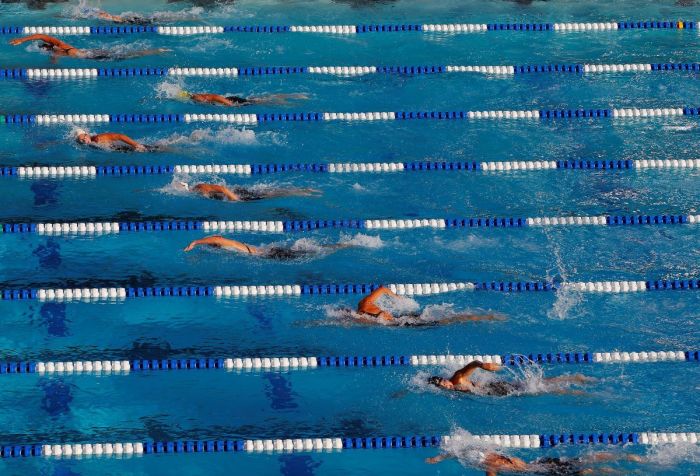NCAA approves new guidelines for trans-identified athletes allowing each sport to decide policy

The NCAA has unveiled a new policy that will allow each sport to determine its policies regarding the participation of trans-identified athletes as outrage over the allowance of biological males who identify as females to compete in women’s athletics spreads.
The NCAA, a leading entity that oversees collegiate athletics in the United States, announced the new participation policy that its board of governors approved Wednesday.
The new policy mirrors guidelines recently enacted by the International Olympic Committee that give individual sports leeway in setting their own rules for the participation of trans-identified athletes in sports that correspond with their stated gender identity instead of their biological sex.
“Like the Olympics, the updated NCAA policy calls for transgender participation for each sport to be determined by the policy for the national governing body of that sport, subject to ongoing review and recommendation by the NCAA Committee on Competitive Safeguards and Medical Aspects of Sports to the Board of Governors,” an NCAA statement reads.
The organization praised the policy as a “sport-by-sport approach to transgender participation that preserves opportunity for transgender student-athletes, while balancing fairness, inclusion and safety for all who compete.”
The NCAA policy, which is effective beginning with the 2022 winter championships, requires trans-identified student-athletes to “document sport-specific testosterone levels beginning four weeks before their sport’s championship selections.” Starting with the 2022-23 academic year, “transgender student-athletes will need documented levels at the beginning of their season and a second documentation six months after the first.”
“They will also need documented testosterone levels four weeks before championship selections. Full implementation would begin with the 2023-24 academic year.”
NCAA President Mark Emmert stated that “approximately 80% of U.S. Olympians are either current or former college athletes.”
“This policy alignment provides consistency and further strengthens the relationship between college sports and the U.S. Olympics," he said in a statement.
“We are steadfast in our support of transgender student-athletes and the fostering of fairness across college sports,” said NCAA Board of Governors Chair and Georgetown University President John DeGioia. “It is important that NCAA member schools, conferences and college athletes compete in an inclusive, fair, safe and respectful environment and can move forward with a clear understanding of the new policy.”
The NCAA's new policy was criticized by the LGBT advocacy organization Athlete Ally, which contends that the NCAA is deviating from the IOC guidelines in that it has contains "no safeguards against harmful, invasive procedures or treatment (such as mandatory surgeries or visual inspections of athletes’ genitalia" and includes "no directives to National Governing Bodies (NGBs) to recognize and prevent harm of trans athletes."
The organization maintains that the new policy places "the burden on college-aged athletes to prove they do not have unfair advantages." Further, the organization complains that the new policy did not have any "direct stakeholder engagement from transgender and nonbinary athletes themselves."
“In the past ten years, the NCAA has met numerous times to discuss updates to the policy and somehow, overnight the policy has changed," said Anne Lieberman, the director of policy & programs for Athlete Ally. "The NCAA has let pressure undermine process, and right now we have more questions than answers."
The new policy comes as Lia Thomas, a trans-identified biological male who competes on the University of Pennsylvania women’s swimming team, has received much pushback after breaking women’s swimming records after competing for years on the men's team.
Caitlyn Jenner, the trans-identified retired Olympic track star who won a gold medal in 1976 under the name Bruce Jenner and first began identifying as a woman in 2015, is one of several decorated athletes who have weighed in on the controversy.
“Biological boys, I’ve said from the beginning, should not be playing in women’s sports,” Jenner asserted in an interview with Fox News Wednesday. “We need to protect women’s sports.”
While Jenner expressed support for Thomas’ decision to “live her life authentically,” the retired Olympian doubled down on the position that the college athlete has an unfair advantage over the biological females on the Penn swimming team.
“Her cardiovascular system is bigger. Her respiratory system is bigger. Her hands are bigger. She can swim faster," Jenner said.
“I feel sorry for the other athletes that are out there, especially at Penn or anybody she’s competing against."
Michael Phelps, a decorated Olympic swimmer who won 23 gold medals in his career, described the debate about trans-identified athletes competing on the teams that correspond with their chosen gender identity as “very complicated.”
In a CNN interview last week, Phelps maintained that “we should all feel comfortable with who we are in our own skin, but I think sports should all be played on an even playing field.”
Reacting to ongoing debate over trans college athlete Lia Thomas competing on the women’s swimming team, “it’s very complicated,” says @MichaelPhelps. “We all should feel comfortable with who we are in our own skin. But I think sports should be played on an even playing field.” pic.twitter.com/brsq7t2vJW
— Christiane Amanpour (@amanpour) January 13, 2022
Amid the pushback against policies allowing trans-identified biological male athletes to compete against females, several states have passed laws requiring athletes to compete on sports teams that match their biological sex rather than their gender identity.
An interactive map by Women’s Liberation Front, which opposes allowing trans-identified athletes to compete on teams that align with their gender identity, reveals that nine states have such laws on the books: Alabama, Arkansas, Florida, Idaho, Mississippi, Montana, Texas, Tennessee and West Virginia.
Ryan Foley is a reporter for The Christian Post. He can be reached at: ryan.foley@christianpost.com




























